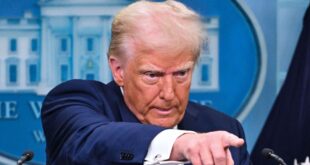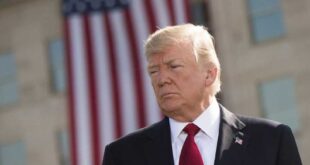A conflict between the United States and China is not inevitable if both sides work to engage with each other and steer the relationship in a peaceful direction.
July 27 marked the seventieth anniversary of the Korean Armistice and the last time the United States and the People’s Republic of China traded shots in anger. Despite the recent diplomatic thaw, Sino-U.S. relations arguably remain at their worst since establishing formal ties in 1979. Reopening dialogue is a positive development, but deep-seated fundamental issues remain far from resolved. Given this reality, is a conflict bound to happen? To be blunt, things do not look good, but ugly is not synonymous with inevitable. The forces of fate do not compel Washington and Beijing to clash. Peace can be preserved, but only if both governments are willing to put in the work.
Academics, scholars, and pundits often view Sino-U.S. relations through the perspective of ancient Greek historian Thucydides. Dr. Graham Allison’s bookDestined for War: Can America and China Escape Thucydides’s Trap? provides one famous example. He states, “Thucydides’s Trap refers to the natural, inevitable discombobulation that occurs when a rising power threatens to displace a ruling power…when a rising power threatens to displace a ruling power, the resulting structural stress makes a violent clash the rule, not the exception.”
To many, this argument, with its appeals to classical history, makes for a compelling analogy. However, Sino-U.S. relations are more complicated than the comparison allows. The Thucydides Trap model fails to fully account for the fact that Washington and Beijing exercise considerable agency over their actions that raise or lower tensions. Hard power dynamics are but one relevant factor in this calculation. Decades of sustained relative peace indicate a durable commitment by both sides to avoid conflict.
This commitment, however, has not come without its tests.
Sino-U.S. tensions are not new, and history provides many examples of successful conflict mitigation. Since 1979, their official relationship has weathered the Tiananmen Square Massacre, a Third Taiwan Strait Crisis, the Belgrade Embassy Bombing, the Hainan Island Incident, countless Chinese state-sponsored cyberattacks, and even an ongoing genocide and suppression of Uyghurs and other ethnic minorities in Xinjiang and Tibet. The history of the Sino-U.S. relationship shows a clear pattern of patience with one another. This dynamic begs an important question: why?
In a word—trade. The United States and China exchanged $758.4 billion in goods and services in 2022. For almost three decades (1990–2015), Washington was a cheerleader for China’s economic rise, its third-largest trading partner, and pivotal to the Chinese ascension to the World Trade Organization. During this span, both nations grew fabulously wealthy. Economic inducements failed to spark lasting political reforms in China, but trade endures as a key stabilizer. Robust trade promotes peace by discouraging severe policy changes that increase the potential for conflict. Despite record-high bilateral investments in 2023, the growing prospect of war pressures leaders on both sides of the Pacific to “decouple” their economies to mitigate potential losses. This tendency underscores a key source of tension—insecurity.
Conflict is likely the outcome because the Chinese state is fundamentally insecure. Beijing’s accumulated wealth and power have not alleviated its deep-seated anxieties of social instability and military containment. Since the PRC’s inception, the Chinese Communist Party (CCP) has held an unshakable siege mentality. Beijing perceives civil liberties, rule of law, free speech, and Western liberalism as existential regime threats and consequently prioritizes internal political security to draconian levels unparalleled in human history. The Tiananmen Square protests, the Soviet Union’s demise from within, and Washington’s active role in promoting the wave of democratization that swept across Eastern Asia and Europe in the waning days of the Cold War inadvertently confirmed the CCP’s fears.
The CCP perceives it cannot be secure unless it controls both its domestic populace and its periphery. Unfortunately for Beijing, these two goals are in tension with one another. As of this writing, Beijing has thirteen active territorial disputes, including the Sino-Indian border, the entirety of the South China Sea, and the self-governing democratic island of Taiwan.
Chinese diplomats pay lip service to peace while indulging in military coercion to solidify Beijing’s territorial claims, heightening the risk of dragging China into an unintended conflict. Washington has responded in kind by expanding its military presence around Eastern China and deepening security cooperation with its regional allies. Beijing interprets these countermoves as an expanding American plot to “contain” China. A war with the United States over Taiwan or a disputed maritime feature would instantly evaporate trillions of dollars in maritime shipping, which China relies on as the world’s largest importer of energy and food. In other words, war weakens Chinese internal stability. By choosing force, Beijing contributes to its own anxieties and undermines peace.
It must be understood that peace is not a static end-state. Rather, peace is a continual process that requires active participation from both parties to maintain communication, mediate disputes, and signal peaceful intent. Beijing and Washington both rhetorically seek peace, but a clear disparity exists between their efforts to pursue it.
The Biden administration prioritizes strengthening high-level communication channels with Beijing precisely for this purpose. We should not mistake Beijing’s recent willingness to entertain diplomacy as a substantive and lasting improvement. Instead, we should remember that Sino-U.S. relations sunk to their current lows precisely because Beijing failed to reciprocate talks for three years. This behavior, frankly, is unbecoming of an aspiring global power. A U.S.-China conflict is not inevitable but is likely to happen if both sides do not reliably pull their weight to engage and help steer the relationship toward a more sustainable direction. That means you, China.
Ryan is a contributor to Young Voices. He served five years in the United States Marine Corps as an intelligence analyst. His published works have appeared in the Marine Corps Gazette, the International Policy Digest, and the Learn Liberty Blog. He speaks Mandarin Chinese and retains an interest in East Asian security challenges.
 Geostrategic Media Political Commentary, Analysis, Security, Defense
Geostrategic Media Political Commentary, Analysis, Security, Defense





